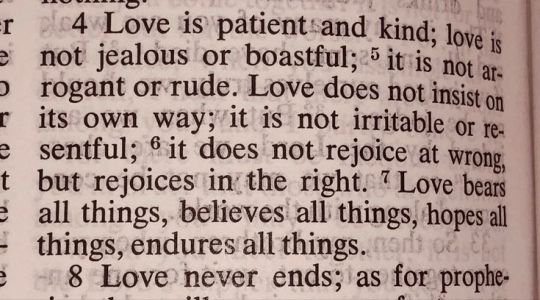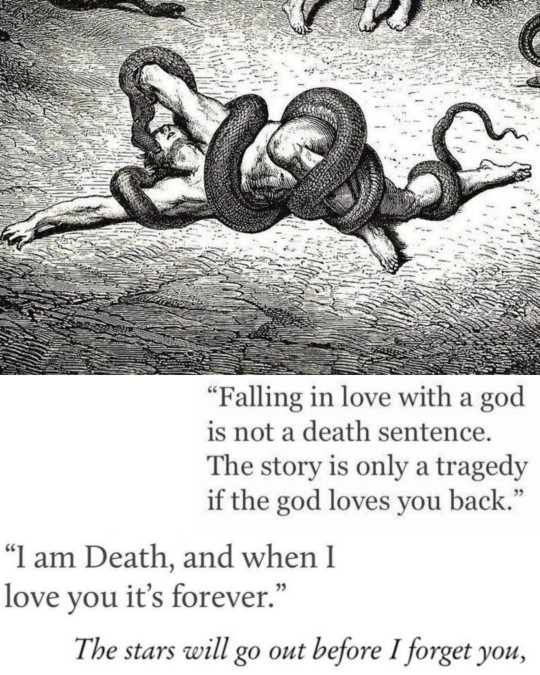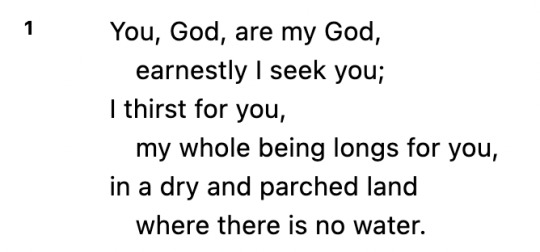#Psalms 19:1 10/14/23
Text
how to read the Bible

this is in order!
1. John
2. Mark
3. Matthew
4. Luke
5. Genesis
6. Exodus
7. Leviticus
8. Numbers
9. Dueteronomy
10. Romans
11. Galatians
12. Colossians
13. Proverbs
14. Ecclesiastes
15. Job
16. 1 Peter
17. 1 Corinthians
18. 2 Corinthians
19. Ephesians
20. Philippians
21. 1 Thessalonians
22. 2 Thessalonians
23. 1 Timothy
24. 2 Timothy
25. James
26. 2 Peter
27. 1 John
28. 2 John
29. 3 John
30. Jude
31. Psalms
32. Joshua
33. Judges
34. 1 Samuel
35. 2 Samuel
36. 1 Kings
37. 2 Kings
38. 1 Chronicles
39. 2 Chronicles
40. Ezra
41. Nehemiah
42. Jeremiah
43. Lamentations
44. Ezekiel
45. Joel
46. Amos
47. Obadiah
48. Nahum
49. Habakkuk
50. Zephaniah
51. Haggai
52. Zechariah
53. Malachi
54. Micah
55. Hosea
56. Luke
57. Esther
58. Jonah
59. Song of Solomon
60. Acts
61. Titus
62. Philemon
63. Hebrew
64. Isaiah
65. Daniel
66. Revelation
95 notes
·
View notes
Text










sources:
1. The Inferno, Canto 24, Gustave Dore 2. Nathaniel Orion G.K. 3. Supervert, Necrophilia Variations 4. Cassandra Clare, Dark Artifices 5. Death and the Maiden, Takato Yamamoto 6. William Shakespeare, As You Like It 7. @thatantisocialbitch 8. The Silent Voice (1989), Alfred Lord 9. author unknown 10. (the playwrights will write your names in the darkness of the sky) 11. Émile Jean Horace Vernet, The Angel of Death (1852) 12. A Midsummer Night's Dream (1937) 13. Margaret Atwood, Alias Grace 14. Eliza Crewe, Crushed 15. Yoshitaka Amano, The Endless Desire 16. Maram Rimawi 17. Farouq Jwaideh 18. Mary Shelley, Mathilda 19. Włodzimierz Błocki, Kiss of Death (1902) 20. Psalm 139:8 21. Jason Chan, Fall 22. Asmita Sengupta 23. Frederick Seidel, The Last Poem in the Book 23. Hans Christian Andersen, The Little Mermaid 24. Anne Bachelier 25. Konstantin Makovsky, Demon and Tamara
#aesthetic#art#quote#web weaving#literature#poetry#dark#death#love#dark romance#gothic art#gothic poetry#scorpio#devil#angel#monster#vampire#hades#Persephone#hades and persephone#forbidden love#doomed relationship#death x reader#lucifer x reader#occulltism#death and the maiden#romantic goth#dracula#the invisible life of addie larue#addie larue
928 notes
·
View notes
Text

The Parable of the Lost Sheep:
Redemption and Restoration
In the parable of the Lost Sheep, Jesus conveys a deep message about the relentless pursuit of redemption and the boundless grace of God. Let us delve into this timeless story and explore its significance in our lives today.
A certain shepherd had a hundred sheep, yet one of them strayed from the fold. Undeterred by the ninety-nine, the shepherd embarked on a relentless search for the lost sheep. He scoured the hills and valleys until, at last, he found the wayward sheep, weary and alone.
Filled with compassion, the shepherd tenderly lifted the sheep onto his shoulders and rejoiced, calling together his friends and neighbors to celebrate the sheep's return. In the same way, Jesus explains, there is more joy in heaven over one sinner who repents than over ninety-nine righteous persons who need no repentance (Luke 15:3-7).
This parable reminds us of the depth of God's love and his unwavering commitment to seek out and restore the lost. Just as the shepherd pursued the lost sheep, so too does our Heavenly Father pursue each one of us with relentless love and compassion.
No matter how far we may have strayed, God's arms are always open wide, ready to welcome us back into His embrace. His grace knows no bounds, and His forgiveness is freely offered to all who humble themselves and turn back to Him.
The parable of the Lost Sheep challenges us to reflect on our own lives and consider those areas where we may have wandered away from God's path. It beckons us to return to the fold, to repent of our sins, and to experience the joy of reconciliation with our Heavenly Father.
Just as the shepherd rejoiced over the lost sheep's return, so too does God rejoice over each one of us when we turn back to Him. Our repentance brings joy to heaven, and our restored relationship with God brings fulfillment and purpose to our lives.
Broader context:
Parable of the Lost Sheep (Luke 15:3-7):
This is the main passage where the parable is found.
God's Pursuit of the Lost:
Ezekiel 34:16 - God seeks out the lost and brings them back to safety.
Isaiah 53:6 - We all, like sheep, have gone astray, but the Lord laid on Jesus the iniquity of us all.
Matthew 18:12-14 - Jesus' teaching about the shepherd who leaves the ninety-nine to seek the one lost sheep.
Psalm 119:176 - Like a lost sheep, seek your servant, for I have not forgotten your commands.
God's Rejoicing over Repentance:
Luke 15:10 - There is joy in the presence of the angels of God over one sinner who repents.
Luke 15:32 - It was fitting to celebrate and be glad, for your brother was dead, and is alive; he was lost, and is found.
Acts 3:19 - Repent therefore, and turn back, that your sins may be blotted out.
God's Unfailing Love and Faithfulness:
Psalm 23:1-3 - The Lord is my shepherd; I shall not want. He makes me lie down in green pastures. He leads me beside still waters. He restores my soul.
Psalm 36:5 - Your steadfast love, O Lord, extends to the heavens, your faithfulness to the clouds.
Psalm 136:1 - Give thanks to the Lord, for he is good, for his steadfast love endures forever.
Lamentations 3:22-23 - The steadfast love of the Lord never ceases; his mercies never come to an end; they are new every morning; great is your faithfulness.
The Shepherd's Role as a Metaphor for Jesus:
John 10:11 - I am the good shepherd. The good shepherd lays down his life for the sheep.
Hebrews 13:20 - Now may the God of peace who brought again from the dead our Lord Jesus, the great shepherd of the sheep, by the blood of the eternal covenant.
Call to Repentance and Restoration:
Joel 2:12-13 - "Yet even now," declares the Lord, "return to me with all your heart, with fasting, with weeping, and with mourning; and rend your hearts and not your garments."
Revelation 3:20 - Behold, I stand at the door and knock. If anyone hears my voice and opens the door, I will come in to him and eat with him, and he with me.
The Joy of Salvation:
Romans 15:13 - May the God of hope fill you with all joy and peace in believing, so that by the power of the Holy Spirit you may abound in hope.
Psalm 51:12 - Restore to me the joy of your salvation and uphold me with a willing spirit.
Questions:
Have I strayed from God's path, and if so, am I willing to humble myself and turn back to Him?
Do I fully grasp the depth of God's love and His relentless pursuit of me, even in my moments of wandering?
How can I share the message of God's grace and redemption with others who may feel lost or disconnected from Him?
What steps can I take to deepen my relationship with God and experience the fullness of His joy and restoration in my life?
Let us pray:
Heavenly Father, we thank you for your unwavering love and grace, demonstrated to us through the parable of the Lost Sheep. Give us the courage to humble ourselves, repent of our sins, and return to you with open hearts. May we never forget the depth of your love for us and the joy that comes from being reconciled to you. In Jesus' name, amen.
#ParableOfTheLostSheep#Redemption#Restoration#GodsLove#Grace#Repentance#Reconciliation#Joy#Sermon#Prayer#christian blog#christian faith#compassion#christianlife#christianity#jesus christ#salvation#jesus#god#biblestudy#holy bible#bible verse#bible scripture#christian#bible study#bible#biblicalteachings#biblical studies#lost sheep#good shepherd
30 notes
·
View notes
Text

The Tower of Babel
1 And the whole earth was of one language and of one speech.
2 And it came to pass as they journeyed from the east that they found a plain in the land of Shinar; and they dwelt there.
3 And they said one to another, Go to, let us make brick and burn them thoroughly. And they had brick instead of stone and slime instead of mortar.
4 And they said, Go to, let us build us a city and a tower whose top may reach unto heaven; and let us make us a name, lest we be scattered abroad upon the face of the whole earth.
5 And the LORD came down to see the city and the tower, which the sons of the man built.
6 And the LORD said, Behold, the people are one, and they all have one language; and they begin to do this, and now nothing will be restrained from them which they have imagined to do.
7 Now, let us go down and there confound their language that they may not understand one another’s speech.
8 So the LORD scattered them abroad from there upon the face of all the earth, and they left off to build the city.
9 Therefore the name of it was called Babel because there the LORD confounded the language of all the earth, and from there the LORD scattered them abroad upon the face of all the earth.
— Genesis 11:1-9 | The Jubilee Bible (JUB)
The Jubilee Bible (from the Scriptures of the Reformation), edited by Russell M. Stendal, Copyright © 2000, 2001, 2010.
Cross References: Genesis 1:26; Genesis 6:4; Genesis 10:10; Genesis 10:32; Genesis 14:1; Genesis 14:10; Genesis 18:21; Genesis 42:23; Exodus 1:14; Exodus 19:11; Deuteronomy 1:28; Psalm 55:9; Psalm 92:9; Jeremiah 50:1; Amos 4:7; Luke 1:51
#pride#arrogance#man#language#confounded#Book of Genesis#Genesis 11:1-9#Old Testament#JUB#The Jubilee Bible
29 notes
·
View notes
Text

Every September, my friend Marc Hong, a professor at Louisville Seminary, hosts Psalmtember. He invites you to join in, too!
Think "Inktober," but in September and with a spiritual focus — and with any art form welcome, from drawing to poetry to photography and beyond. There's also no pressure to create something for every day — do as many or as few as you like.
Here's Marc's description of this artistic event:
Each year, I love to spend a month making art inspired by the Psalms. There are 30 days in September, meaning that I can evenly divide up the 150 Psalms into 5 sets of 30. So, if I do this for 5 years, I will have made art with all of the Psalms.
Join me! The prompt list is in the image [as well as below the readmore]. But other words may stand out to you! Or you may try to make art that represents the wholeness of the Psalm.
I encourage you to read the text of the whole Psalm each day, consider what emotions it stirs up in you, choose a medium that speaks to you, and make some art! Folks have painted, used ink, drawn with colored pencils, taken photographs, written haikus, and much more. Choose what stirs delight in you!
Tag your post with #psalmtember2023 so we can celebrate the Psalms through art together!
Marc and many others post on Facebook, but I'll be paying attention to the tag here on tumblr. If you create anything you'd like me to share on Facebook on your behalf, DM me.
PSALMTEMBER 2023 PROMPT LIST
SEPT 1 - Psalm 31 - Refuge
SEPT 2 - Psalm 32 - Waters
SEPT 3 - Psalm 33 - Breath
SEPT 4 - Psalm 34 - Radiant
SEPT 5 - Psalm 35 - Net
SEPT 6 - Psalm 36 - Mountains
SEPT 7 - Psalm 37 - Smoke
SEPT 8 - Psalm 38 - Burden
SEPT 9 - Psalm 39 - Burned
SEPT 10 - Psalm 40 - Bog
SEPT 11 - Psalm 41 - Rise
SEPT 12 - Psalm 42 - Deer
SEPT 13 - Psalm 43 - Altar
SEPT 14 - Psalm 44 - Dust
SEPT 15 - Psalm 45 - Robes
SEPT 16 - Psalm 46 - River
SEPT 17 - Psalm 47 - Throne
SEPT 18 - Psalm 48 - City
SEPT 19 - Psalm 49 - Graves
SEPT 20 - Psalm 50 - Tempest
SEPT 21 - Psalm 51 - Clean
SEPT 22 - Psalm 52 - Uproot
SEPT 23 - Psalm 53 - Bones
SEPT 24 - Psalm 54 - Upholder
SEPT 25 - Psalm 55 - Dove
SEPT 26 - Psalm 56 - Bottle
SEPT 27 - Psalm 57 - Shadow
SEPT 28 - Psalm 58 - Snail
SEPT 29 - Psalm 59 - Dogs
SEPT 30 - Psalm 60 - Cracks
#i'm sure i won't be creating art for most days#but i love to read along in the Psalms as the days go by#and to see what everyone else creates!#psalmtember#psalmtember2023#psalms#Marc's super cool btw. one of my fave professors from seminary -- actively queer affirming & seeks to accomodate#disabilities and other lived experiences of his students
74 notes
·
View notes
Text














i was born for this || a web weave about belonging to God
wikipedia // psalm 63:1 // wikipedia // matthew 25:23 // clerical collars: symbolism and meaning // isaiah 44:5 // the line i called the horizon by consumptive_sphinx // 1 corinthians 6:19-20 // les misérables // romans 14:7-8 // clear night by charles wright // psalm 119:20 // batter my heart, three person'd God by john donne // isaiah 43:1
[IDs under cut]
Image 1: Serviam is Latin for "I will serve."
Image 2:
1 You, God, are my God,
earnestly I seek you;
I thirst for you,
my whole being longs for you,
in a dry and parched land
where there is no water.
Image 3:
"Servant of God" is a title used in the Catholic Church to indicate that an individual is on the first step toward possible canonization as a saint. Wikipedia
Image 4:
23 “His master replied, ‘Well done, good and faithful servant!
Image 5:
The collar remains a distinctive sign of the priest’s availability and the permanent nature of Holy Orders. The priest “is not his own” and is a visible sign of Jesus Christ,
Image 6:
Some will say, ‘I belong to the Lord’;
others will call themselves by the name of Jacob;
still others will write on their hand, ‘The Lord’s,’
and will take the name Israel.
Image 7:
"I am for God, you know I am for God,"
Image 8:
You are not your own; 20 you were bought at a price.
Image 9:
My soul belongs to God, I know
I made that bargain long ago
Image 10:
7 For none of us lives for ourselves alone, and none of us dies for ourselves alone. 8 If we live, we live for the Lord; and if we die, we die for the Lord. So, whether we live or die, we belong to the Lord.
Image 11:
I want to be bruised by God.
I want to be strung up in a strong light and singled out.
I want to be stretched, like music wrung from a dropped seed.
I want to be entered and picked clean.
Image 12:
20 My soul is consumed with longing
for your laws at all times.
Image 13:
Take me to you, imprison me, for I,
Except you enthrall me, never shall be free,
Nor ever chaste, except you ravish me.
Image 14:
“Do not fear, for I have redeemed you;
I have summoned you by name; you are mine.
#used the NIV for all the Bible quotes#catholic tag#grace don't look#i want to be strung up in a strong light#web weaving#web weave#my edit
68 notes
·
View notes
Text


The άνάλαβος (analavos) is the distinctive garment of a monk or a nun tonsured into the highest grade of Orthodox monasticism, the Great Schema, and is adorned with the instruments of the Passion of Christ. It takes its name from the Greek αναλαμβάνω (“to take up”), serving as a constant reminder to the one who wears it that he or she must “take up his cross daily” (Luke 9:23). The ornately-plaited Crosses that cover the analavos, the polystavrion (πολυσταύριον, from πολύς, “many,” and σταυρός, “Cross”) — a name often, though less accurately, also applied to the analavos — reminds the monastic that he or she is “crucified with Christ” (Galatians 2:20).
With regard to each image on the analavos, the rooster represents “the cock [that] crowed” (Matthew 26:74; Mark 14:68 Luke 22:60; John 18:27) after Saint Peter had “denied thrice” His Master and Lord (John 13:38).
The pillar represents the column to which Pilate bound Christ “when he scourged Him” (Mark 15:15) “by Whose stripes we were healed” (Isaiah 53:5; I Peter 2:24).
The wreath garlanding the Cross represents the “crown of thorns” (Matthew 27:29; Mark 15:17; John 19:2) that “the soldiers platted” (John 19:2) and “put upon the head” (Matthew 27:29) of “God our King of old” (Psalm 73:13), Who freed man from having to contend against “thorns and thistles in the sweat of his brow” (Genesis 3:18-19).
The upright post and the traverse beam represent the stipes and the patibulum that formed “the Cross of our Lord Jesus Christ” (Galatians 6:14), upon which “all day long He stretched forth His hands unto a disobedient and gainsaying people” (Isaiah 65:2; Romans 10:21).
The four spikes at the center of the Cross and the hammer beneath its base represent the “nails” (John 20:25) and hammer with which “they pierced” (Psalm 21:16; John 19:37) “His hands and His feet” (Luke 24:40). when they “lifted up from the earth” (John 12:32) Him Who “blotted out the handwriting of ordinances that was against us by nailing it to His Cross” (Colossians 2:14).
The base upon which the Cross stands represents “the place, which is called 'Calvary' (Luke 23:33), or 'Golgotha', that is to say, the Place of the Skull” (Matthew 27:33), “where they crucified Him” (John 19:18) Who “wrought salvation in the midst of the earth” (Psalm 73:13).
The skull and crossbones represent “the first man Adam” (I Corinthians 15:45), who by tradition “returned unto the ground” (Genesis 3:19) at this very spot, the reason that this place of execution, “full of dead men’s bones” (Matthew 23:27) became the place where “the last Adam was made a quickening spirit” (I Corinthians 15:45).
The plaque on top of the Cross represents the titulus, the “title” (John 19:19-20), with “the superscription of His accusation” (Mark 15:26), which “Pilate wrote” (John 19:19) “and set up over His head” (Matthew 27:37); however, instead of “Jesus of Nazareth the king of the Jews” (John 19:19), which “was written over Him in letters of Greek, and Latin, and Hebrew” (Luke 23:38), the three languages being an allusion to the Three Hypostases “of the Father, and of the Son, and of the Holy Spirit” (Matthew 28:19), this titulus reads, “The King of Glory” (Psalm 23:7-10), “for had they known it they would not have crucified the Lord of glory” (I Corinthians 2:8).
The reed represents the “hyssop” (John 19:29) upon which was put “a sponge full of vinegar” (Mark 15:36), which was then “put to His mouth” (John 19:29) when in His “thirst they gave Him vinegar to drink” (Psalm 68:21), Him of Whom it was said that “all wondered at the gracious words which proceeded out of His mouth” (Luke 4:22).
The lance represents the “spear [that] pierced His side”; “and forthwith came there out blood and water” (John 19:34) from Him Who “took one of Adam's ribs, and closed up the flesh instead thereof" (Genesis 2:21) and Who “washed us from our sins in His own blood” (Revelation 1:5).
The plaque at the bottom of the Cross represents the suppedaneum of Christ, “His footstool” (Psalm 98:5), “the place where His feet have stood” (Psalm 131:7). It is slanted because, according to one tradition, at the moment when “Jesus cried with a loud voice, and gave up the spirit” (Mark 15:37), He allowed a violent death spasm to convulse His legs, dislodging His footrest in such a manner that one end pointed upwards, indicating that the soul of the penitent thief, Saint Dismas, “the one on His right hand” (Mark 15:27) would be “carried up into Heaven” (Luke 24:51), while the other end, pointed downwards, indicated that the soul of the impenitent thief, Gestas, “the other on His left” (Mark 15:27), would “be thrust down to Hell” (Luke 10:15), showing that all of us, “the evil and the good, the just and the unjust” (Matthew 5:45), “are weighed in the balance” (Ecclesiasticus 21:25) of the Cross of Christ.
The ladder and the pincers beneath the base of the Cross represent the means of deposition by which Saint Joseph of Arimathea, “a rich man” (Matthew 27:57) who “begged for the body of Jesus” (Matthew 27:58; Luke 23:52), “took it down” (Luke 23:53), so that as in body He descended from the Cross, so in soul “He also descended first into the lower parts of the earth” (Ephesians 4:9), “by which also He went and preached unto the spirits in prison” (I Peter 3:19).
Through these instruments, “the Cross of Christ” (I Corinthians 1:17: Galatians 6:12; Philippians 3:18) became the “Tree of Life” (Genesis 2:9; 3:22, 24; Proverbs 3:18, 11:30; 13:12; 15:4; Revelation 2:7; 22:2,14), by which the Lord Jesus reified His words that, “I am the resurrection, and the life: he that believeth in Me, though he were dead, yet shall he live, and whosoever liveth and believeth in Me shall never die” (John 11:25-26).
[source]
17 notes
·
View notes
Text
[Maintaining A Clear Conscience]
Believers in Christ must strive to maintain a clear conscience: we must remove any pollution or defilement in our minds, hearts, and souls. That includes being cautious of what we say (Matthew 15:11), what we hear—practically anything NEGATIVE our soul absorbs, which can pollute it. And whatever we absorb can cause us to behave in a not so pleasing way to God (Romans 12:1).
This can happen without us being aware. For instance, if you run to the internet to answer your questions and to solve your problems, instead of God’s truth, you’re not going to have peace because the world is full of lies and ruled by spirits of darkness (Ephesians 6:12).
“We know that we are children of God, and that the whole world is under the control of the evil one.”
-1 John 5:19
These are deceiving spirits who want to take our focus off God and drag us down. They want us to feel as if there is no hope. It’s all a distraction.
The devil will use our emotions to toy with us. Therefore, trusting other sources, our hearts, and people instead of God and His word will only birth fear, paranoia, and anxiety, which are not fruits of the spirit (Galatians 5:22-23).
Not only that, the human heart is deceitful (Jeremiah 17:9). And as Proverbs 28:26 says: “He who trusts in his own heart is a fool, but he who walks in wisdom will escape.”
As Believers, this will only make us stumble and our faith wobble. That is why we need to root ourselves in God and in His word.
“They will be like a tree planted by the water that sends out its roots by the stream. It does not fear when heat comes; its leaves are always green. It has no worries in a year of drought and never fails to bear fruit.”
-Jeremiah 17:8
<Extra Verses>
“It is better to trust in the Lord than to put confidence in man. It is better to trust in the Lord than to put confidence in princes.”
Psalm 118:8-9
“Don’t put your trust in mere humans. They are as frail as breath. What good are they?”
-Isaiah 2:22
“Fools believe every word they hear, but wise people think carefully about everything.”
-Proverbs 14:15
<Bonus Verses>
“Finally, brothers and sisters, whatever is true, whatever is noble, whatever is right, whatever is pure, whatever is lovely, whatever is admirable—if anything is excellent or praiseworthy—think about such things. Whatever you have learned or received or heard from me, or seen in me—put it into practice. And the God of peace will be with you.”
-Philippians 4:8-9
“Do not be anxious about anything, but in every situation, by prayer and petition, with thanksgiving, present your requests to God. And the peace of God, which transcends all understanding, will guard your hearts and your minds in Christ Jesus.”
-Philippians 4:6-7
“We demolish arguments and every pretension that sets itself up against the knowledge of God, and we take captive every thought to make it obedient to Christ.”
-2 Corinthians 10:5
“My thoughts are nothing like your thoughts,” says the Lord. “And my ways are far beyond anything you could imagine. For just as the heavens are higher than the earth, so my ways are higher than your ways and my thoughts higher than your thoughts.
-Isaiah 55:8-9
“Don’t become so well-adjusted to your culture that you fit into it without even thinking. Instead, fix your attention on God. You’ll be changed from the inside out. Readily recognize what he wants from you, and quickly respond to it. Unlike the culture around you, always dragging you down to its level of immaturity, God brings the best out of you, develops well-formed maturity in you.”
-Romans 12:2
“You will keep in perfect peace all who trust in you, all whose thoughts are fixed on you!”
-Isaiah 26:3
“Set your minds on things above, not on earthly things.”
-Colossians 3:2
#christian#bible verse#christianity#bibleverse#jesus christ#jesus loves you#faith in god#faith in jesus#follower of jesus christ#god
10 notes
·
View notes
Text

Holy, loving, faithful, gracious, compassionate, merciful, longsuffering God, is righteous, just and true, and so are all His judgments, in all the earth.
Thus says the Lord God: "I will take also one of the highest branches of the high cedar and set it out. I will crop off from the topmost of its young twigs a tender one, and will plant it on a high and prominent mountain. On the mountain height of Israel I will plant it; and it will bring forth boughs, and bear fruit, and be a majestic cedar. Under it will dwell birds of every sort; in the shadow of its branches they will dwell."
"And all the trees of the field shall know that I, the LORD, have brought down the high tree and exalted the low tree, dried up the green tree and made the dry tree flourish; I, the LORD, have spoken and have done it." (Ezekiel 17:22-24)
"Great and marvelous are Your works, Lord God Almighty! Just and true are Your ways, O King of the saints! Who shall not fear You, O Lord, and glorify Your name? For You alone are holy. For all nations shall come and worship before You, for Your judgments have been manifested." (Revelation 15:3-4)
- A Walk In The Garden Devotions
Related Bible Readings: Deuteronomy 32:1-4; 1 Samuel 16:6-7; Psalm 19; Psalm 23; Psalm 75; Psalm 89; Psalm 105; Psalm 145; Proverbs 14:34-35; Ezekiel 31; Isaiah 46:12-13; Isaiah 61:8-11; John 7:24; Acts 10:34-48; Revelation 19 and further study Revelation in its entirety.
View Related Devotion
#Bible Reading#christian encouragement#christianinspiration#God's ways#God's righteousness#Righteous God#True God#God's judgments#God's attributes#christian devotion#garden devotion
10 notes
·
View notes
Text
Psalms chapter 136
1 O give thanks unto the LORD; for he is good: for his mercy endureth for ever.
2 O give thanks unto the God of gods: for his mercy endureth for ever.
3 O give thanks to the Lord of lords: for his mercy endureth for ever.
4 To him who alone doeth great wonders: for his mercy endureth for ever.
5 To him that by wisdom made the heavens: for his mercy endureth for ever.
6 To him that stretched out the earth above the waters: for his mercy endureth for ever.
7 To him that made great lights: for his mercy endureth for ever:
8 The sun to rule by day: for his mercy endureth for ever:
9 The moon and stars to rule by night: for his mercy endureth for ever.
10 To him that smote Egypt in their firstborn: for his mercy endureth for ever:
11 And brought out Israel from among them: for his mercy endureth for ever:
12 With a strong hand, and with a stretched out arm: for his mercy endureth for ever.
13 To him which divided the Red sea into parts: for his mercy endureth for ever:
14 And made Israel to pass through the midst of it: for his mercy endureth for ever:
15 But overthrew Pharaoh and his host in the Red sea: for his mercy endureth for ever.
16 To him which led his people through the wilderness: for his mercy endureth for ever.
17 To him which smote great kings: for his mercy endureth for ever:
18 And slew famous kings: for his mercy endureth for ever:
19 Sihon king of the Amorites: for his mercy endureth for ever:
20 And Og the king of Bashan: for his mercy endureth for ever:
21 And gave their land for an heritage: for his mercy endureth for ever:
22 Even an heritage unto Israel his servant: for his mercy endureth for ever.
23 Who remembered us in our low estate: for his mercy endureth for ever:
24 And hath redeemed us from our enemies: for his mercy endureth for ever.
25 Who giveth food to all flesh: for his mercy endureth for ever.
26 O give thanks unto the God of heaven: for his mercy endureth for ever.
7 notes
·
View notes
Text

Embracing the Fruit of the Spirit:
Cultivating Christlike Character
Introduction:
Embark on a transformative journey through the fruit of the Spirit as we explore the qualities that reflect the character of Christ. Join us on this enriching exploration of love, joy, peace, patience, kindness, goodness, faithfulness, gentleness, and self-control, and discover how they can shape our lives and relationships.
Scripture Passage: Galatians 5:22-23 (NIV)
Cross References: John 15:1-17, Colossians 3:12-17, 2 Peter 1:5-8
Commentary:
In Galatians 5, Paul lists the fruit of the Spirit as evidence of a life surrendered to Christ. These qualities—love, joy, peace, patience, kindness, goodness, faithfulness, gentleness, and self-control—flow from a heart transformed by the Holy Spirit and reflect the character of Christ Himself.
In John 15, Jesus uses the analogy of the vine and branches to illustrate the importance of abiding in Him to bear fruit. He emphasizes the intimate connection between abiding in His love and producing fruit that glorifies the Father.
Colossians 3 calls believers to clothe themselves with compassion, kindness, humility, gentleness, and patience, bearing with one another and forgiving as the Lord has forgiven us. These virtues are essential for maintaining unity in the body of Christ.
In 2 Peter 1, believers are encouraged to make every effort to add to their faith goodness, knowledge, self-control, perseverance, godliness, mutual affection, and love. These qualities ensure that we will be effective and productive in our knowledge of our Lord Jesus Christ.
Broader Context:
Love:
1 Corinthians 13:4-7 - The characteristics of love as described by Paul.
John 13:34-35 - Jesus commands his disciples to love one another as He has loved them.
1 John 4:7-12 - Believers are called to love one another because love comes from God.
Joy:
Psalm 16:11 - In God's presence is fullness of joy.
Nehemiah 8:10 - The joy of the Lord is our strength.
John 15:11 - Jesus desires His joy to be in us, and for our joy to be complete.
Peace:
Isaiah 26:3 - God promises perfect peace to those whose minds are steadfast.
Romans 5:1 - Through faith in Jesus, we have peace with God.
Philippians 4:6-7 - God's peace guards our hearts and minds in Christ Jesus.
Patience:
Ecclesiastes 7:8 - Patience is better than pride.
Romans 12:12 - Believers are called to be patient in affliction.
James 5:7-8 - Be patient and stand firm, for the Lord's coming is near.
Kindness:
Ephesians 4:32 - Be kind and compassionate to one another, forgiving each other.
Proverbs 19:22 - What is desired in a man is kindness.
Colossians 3:12 - As God's chosen people, clothe yourselves with kindness.
Goodness:
Psalm 23:6 - Surely goodness and love will follow me all the days of my life.
Romans 12:21 - Overcome evil with good.
Titus 2:14 - Christ gave himself for us to redeem us and purify for himself a people that are his very own, eager to do what is good.
Faithfulness:
1 Corinthians 4:2 - Faithfulness is required of stewards.
2 Timothy 2:13 - God remains faithful even when we are faithless.
Revelation 2:10 - Be faithful, even to the point of death, and I will give you life as your victor's crown.
Gentleness:
Proverbs 15:1 - A gentle answer turns away wrath.
Galatians 6:1 - Restore others gently when they are caught in sin.
1 Peter 3:15 - In your hearts honor Christ the Lord as holy, always being prepared to make a defense to anyone who asks you for a reason for the hope that is in you; yet do it with gentleness and respect.
Self-Control:
Proverbs 25:28 - A man without self-control is like a city broken into and left without walls.
1 Corinthians 9:25 - Everyone who competes in the games goes into strict training. They do it to get a crown that will not last, but we do it to get a crown that will last forever.
Titus 2:11-12 - For the grace of God has appeared, bringing salvation for all people, training us to renounce ungodliness and worldly passions, and to live self-controlled, upright, and godly lives in the present age.
Questions:
Which fruit of the Spirit do you find most challenging to cultivate in your life, and why?
In what ways can you abide more deeply in Christ to bear fruit that reflects His character?
How do the fruit of the Spirit impact your relationships with God and others?
What practical steps can you take to nurture the fruit of the Spirit in your daily life?
Prayer:
Heavenly Father, we thank you for the gift of the Holy Spirit who produces fruit in our lives that reflects the character of Christ. Help us to cultivate these virtues daily, empowering us to love as you love, to bring joy wherever we go, and to walk in peace amidst life's storms. May our lives bear witness to your transformative power and bring glory to your name. Amen.
#faith#christianity#christian faith#jesus christ#bible#faith in jesus#bible scripture#bible verse#christianlife#christ#biblestudy#bible study#bible quote#holy bible#christian#scripture#daily bible study#daily scripture#daily devotionals#Character#Transformation#ChristianLiving#SpiritualGrowth#Love#Joy#Peace#Patience#Kindness#Goodness#Faithfulness
13 notes
·
View notes
Text

A Gentle Answer Turns Away Wrath
1 A gentle answer turns away wrath, But a harsh word stirs up anger.
2 The tongue of the wise commends knowledge, But the mouth of fools gush out folly.
3 The LORD's eyes are everywhere, Keeping watch on the evil and the good.
4 A gentle tongue is a tree of life, But deceit in it crushes the spirit.
5 A fool despises his father's correction, But he who heeds reproof shows prudence.
6 In the house of the righteous is much treasure, But the income of the wicked brings trouble.
7 The lips of the wise spread knowledge; Not so with the heart of fools.
8 The sacrifice made by the wicked is an abomination to the LORD, But the prayer of the upright is his delight.
9 The way of the wicked is an abomination to the LORD, But he loves him who follows after righteousness.
10 There is stern discipline for one who forsakes the way: Whoever hates reproof shall die.
11 She'ol and Avaddon are before the LORD -- How much more then the hearts of the children of men!
12 A scoffer doesn't love to be reproved; He will not go to the wise.
13 A glad heart makes a cheerful face; But an aching heart breaks the spirit.
14 The heart of one who has understanding seeks knowledge, But the mouths of fools feed on folly.
15 All the days of the afflicted are wretched, But one who has a cheerful heart enjoys a continual feast.
16 Better is little, with the fear of the LORD, Than great treasure with trouble.
17 Better is a dinner of herbs, where love is, Than a fattened calf with hatred.
18 A wrathful man stirs up contention, But one who is slow to anger appeases strife.
19 The way of the sluggard is like a thorn patch, But the path of the upright is a highway.
20 A wise son makes a father glad, But a foolish man despises his mother.
21 Folly is joy to one who is void of wisdom, But a man of understanding keeps his way straight.
22 Where there is no counsel, plans fail; But in a multitude of counselors they are established.
23 Joy comes to a man with the reply of his mouth. How good is a word at the right time!
24 The path of life leads upward for the wise, To keep him from going downward to She'ol.
25 The LORD will uproot the house of the proud, But he will keep the widow's borders intact.
26 The LORD detests the thoughts of the wicked, But the thoughts of the pure are pleasing.
27 He who is greedy for gain troubles his own house, But he who hates bribes will live.
28 The heart of the righteous weighs answers, But the mouth of the wicked gushes out evil.
29 The LORD is far from the wicked, But he hears the prayer of the righteous.
30 The light of the eyes rejoices the heart. Good news gives health to the bones.
31 The ear that listens to the reproof lives, And will be at home among the wise.
32 He who refuses correction despises his own soul, But he who listens to reproof gets understanding.
33 The fear of the LORD teaches wisdom. Before honor is humility.
— Proverbs 15 | Hebrew Names Version (HNV)
The Hebrew Names Version Bible is in the public domain
Cross References: Genesis 13:8; Leviticus 7:18; Deuteronomy 19:14; Deuteronomy 32:22; Judges 8:1; 1 Kings 1:12; Nehemiah 2:2; Psalm 59:7; Proverbs 1:2; Proverbs 1:7; Proverbs 1:25; Proverbs 8:21; Proverbs 9:7; Proverbs 10:1; Proverbs 12:14; Proverbs 13:18; Proverbs 16:24; Proverbs 17:1; Proverbs 18:15; Proverbs 22:5; Proverbs 25:25; Ecclesiastes 4:6; Ecclesiastes 7:5; John 9:31; Acts 1:24; Ephesians 5:15; 1 Timothy 6:9; 1 Timothy 6:11; Hebrews 4:13; 1 Peter 3:15; Revelation 2:7
#righteousness#wisdom#self-control#life#guidance#discretion#Proverbs 15#Book of Proverbs#Old Testament#HNV#Hebrew Names Version bible
20 notes
·
View notes
Note
How do I go about confessing my sins? It just always confuses me that Jesus sacrificed himself for our sins so that we are forgiven or can be forgiven? If we are already forgiven then why do we need to keep repenting when we unwillingly commit sins such as cursing when emotionally frustrating or doing things out of temper ... or if jesus is the reason why we can be forgiven then we wouldn't be forgiven no matter what if it werent for jesus? What about the people that existed prior to Jesus being born?
Your questions are many and I will try to break them each down simply and supportive with Scripture. Bear with me.
i. You pray to God and confess your sins, tell Him what you have done and ask for His forgiveness. When we sin, we sin against a Holy God and we don't feel right, there is a lack of peace and fellowship with God it can feel like (Ephesians 4:30, grieving the Spirit it's referred to for believers); it is a good thing if we cannot rest in our sin and have peace living in sin, because the Holy Spirit indwells the believer (Ephesians 4:30, 1 Corinthians 6:19). If we feel no guilt when sinning, we keep on and see no wrong and justify it, it would seem we are not saved because how can we love/rejoice in what God hates (John 14, 1 John 2, 1 Corinthians 11:32, Hebrews 12:8). There should be a "war", if you will, within a believer of sin and not having peace living in sin. We live in victory and not defeat, because Christ paid the cost, but we don't go on willfully sinning (Romans 6). We all sin and fall short of the glory of God (Romans 3:23), but we don't stay there. We still sin (1 John 1), but a believer will not want to be enslaved to sin. It will bother a believer; that is the Holy Spirit conviction. This is a good thing! Sanctification is a process and it is a good thing to be convicted of sin and freeing to confess it to our Holy God who loves us.
ii. Yes, Jesus died on the cross for our sins. He paid the cost that we may no longer be guilty.
"When we accept Jesus as our Savior, we receive salvation and forgiveness. But that’s not all. The Bible says we also receive justification, redemption, reconciliation, atonement, propitiation, and regeneration. Each of these theological terms expresses wonderful truths about the blessing we receive when Jesus becomes our Savior. Salvation and forgiveness, while related, are not exactly the same. The term salvation comes from the Greek word sozo, which means 'to be delivered, rescued.' Salvation is deliverance from the penalty of sin, that is, eternal separation from God (Romans 6:23; Matthew 25:46). Salvation is God’s rescuing us from our deserved fate. Salvation also includes a more immediate deliverance from the power of sin in this life. Sin has lost its dominion over the saved ones (Romans 6:14). Faith in Jesus Christ rescues us from the empty and meaningless life described in Ecclesiastes and provides us with a life that is abundant and fruitful (John 10:10; Galatians 5:22–23). The term forgiveness comes from the Greek word aphiemi, which means 'to let go, to give up, to keep no longer.' When Jesus forgives us, our sins, trespasses, iniquities, and transgressions are erased, wiped off the record. Forgiveness of sin is analogous to financial debt being erased. When God forgives us of our sins, we are free. Our sins are wiped out. God will never hold them against us (Psalm 103:12). Salvation and forgiveness are closely related. There is no salvation without forgiveness. Salvation is God’s delivering us from the consequences of sin. Forgiveness is God’s erasing our sin debt. To use a financial illustration, forgiveness is God’s shredding the documents that list our debt, and salvation is God’s letting us out of debtors’ prison. Praise God for the wonderful salvation and forgiveness He has provided. May our lives reflect gratitude for all He has done for us (Romans 12:1)." Source
iii. I'm unsure I understand your full question, but apart from receiving Jesus as our Savior (the propitiation of our sins) there is no forgiveness. There is no other Way (John 14:6). We can never be good enough, keep the law perfectly, achieve nirvana, pay the debt, whatever you want to call it. Salvation, forgiveness, peace only comes through Jesus Christ. And this new life (being born again in Scripture; see John 3:6-7) will bring forth a new life in you; you will be set apart (sanctification; see 2 Timothy 2). "Work at living in peace with everyone, and work at living a holy life, for those who are not holy will not see the Lord." Hebrews 12:14. We are saved by grace alone through faith alone–"For it is by grace you have been saved through faith, and this not from yourselves; it is the gift of God, not by works, so that no one can boast" Ephesians 2:8-9. Our faith, however, will show forth a new life/being born again/sanctification- there will be fruit, where there is no fruit there is no new life. "Faith by itself, if it does not result in action, is dead." James 2:18; "He cuts off every branch of Mine that doesn’t produce fruit, and He prunes the branches that do bear fruit so they will produce even more." John 15:2.
iv. See https://www.gotquestions.org/Old-Testament-salvation.html
9 notes
·
View notes
Text
If I had to blame one thing for how widespread child abuse is (and I do think there’s more than one factor involved) then my first pick would just be the fact that so many people are brought up with the idea that effective, loving parenting has to be authoritarian and cruel.
A lot of parents do sincerely believe that their children will end up “spoiled”, miserable, or evil somehow if they don’t use violence to condition them into good behavior.
There is often a religious angle to this as well, with popular sayings like “Spare the rod, spoil the child” being used to justify hitting children in Christian households.
What follows is a series of copypasted paragraphs from a bible website (unaltered save for me adding emphasis to certain parts), plus my comments on them:
The phrase “spare the rod, spoil the child” is a modern-day proverb that means if a parent refuses to discipline an unruly child, that child will grow accustomed to getting his own way. He will become, in the common vernacular, a spoiled brat. The saying comes from Proverbs 13:24, “He who spares the rod hates his son, but he who loves him is careful to discipline him.” The Lord uses discipline to reveal our sin to us. This is also how parents reveal the truth of our need for a Savior to their children. When a child does not feel the consequence of his sin, he will not understand that sin requires punishment. The Lord provides a way to salvation and forgiveness through Jesus, but that means little to those who do not see their sin.
A lot of parents believe this literally. They think that you will just be oblivious to the fact that your actions can have consequences if they don’t create consequences by beating you (and in my experience they also do that when you are merely disobedient, even if you don’t do anything actually wrong).
They think this is what good parents (such as their own) do, and they want to be good parents. They feel that not hitting children would be a form of neglect that could damn your very soul.
Furthermore, correction shows us that we are not above reproach and that we are accountable for our actions. Our natural pride blinds us to our need for a Savior, and discipline reveals the truth of our wretchedness (Revelation 3:17). Since salvation is the most important choice the child will ever make, it is imperative that parents are leading him to Christ, and discipline is critical to this process. Proverbs 23:13 says, “Do not withhold discipline from a child; if you punish him with the rod, he will not die.” In the context of verses 13–14, die means “experience spiritual death in hell.” Children who respect authority and feel sorrow for their sin are much more likely to ask Jesus to forgive them and be saved.
All children are born sinful (Romans 5:12–19). Their natural self is destructive and unrighteous. That does not mean they aren’t valuable and worthy of love (Psalm 127:3). It means that they are not born with any natural “goodness” in them. That is why all children need discipline. Proverbs 22:15 says, “Folly is bound up in the heart of a child, but the rod of discipline will drive it far from him.” Discipline is critical for wisdom (Proverbs 29:15), and a child who obeys his parents will be wise (Proverbs 13:1). And even adults who do not heed correction will feel the consequences of their foolishness (Proverbs 10:13).
The parents hold this idea that all children are already born essentially evil and too proud for salvation. Their pride must be completely broken and they must be made to submit to authority.
It is kind of ironic, then, that people blame all child abuse on malevolent “narcissistic” parents when the purpose of this widespread, very normalized, even legal abuse is precisely to kill the pride and inherent evil that allegedly exists within each child and shape them into decent people through violence. To very literally break their will and original personalities and mold them into something the parents prefer.
People in my country’s media used these same bible verses to justify child abuse. My father even had a literal rod that he threatened to beat me in the soles with if I disobeyed him. He thought God would punish both of us if I was not made submissive towards him.
So, rather than blame a rare and heavily-stigmatized personality disorder that I ended up developing myself, I have taken the radical step of advocating for the end of the church and the traditional, authoritarian family.
165 notes
·
View notes
Text

“He makes me lie down in green pastures. He leads me beside still waters.” —Psalm 23:2
“David writes that the Lord provides rest in green pastures and guides him to still waters. Shepherds in biblical times did not "drive" their sheep. Instead of pushing the herd from behind, they walked ahead of the flock, which followed. The land of Israel did not have plentiful, verdant pastureland except in the rainy season. Shepherds needed to guide their sheep to green pasture, otherwise the sheep would go hungry.
Further, sheep will not drink from a rushing stream. Nor will they instinctively seek out clean water—they are prone to drinking whatever is nearby. Therefore, a good shepherd leads his sheep to calm, clean water.
As a good shepherd, the Lord guided David to green pasture; that is, He provided well for David, giving him abundance, rest, and peace. Jesus, the Good Shepherd, provides all of this care for His followers. He gives us rest (Matthew 11:28), abundance (Matthew 6:33; John 10:10; Ephesians 1:3; Philippians 4:19), and peace (John 14:27).
Just as a shepherd in Bible times knew his sheep by name, so our Good Shepherd knows us personally and calls us by name. We should be quick to heed His call and follow Him!
Father God, thank You that Jesus is my good and faithful Shepherd. Thank You for the times that You bring me to a halt in the hustle and bustle of this frenzied life and cause me to take time to rest. May I listen to Your voice and respond to Your gracious leading and lie down in the green pastures into which You have led me, in Jesus name I pray, AMEN. 🙏”
From: FB. (Via)
#psalm 23:2#bible#christian blog#god#belief in god#faith in god#jesus#belief in jesus#faith in jesus#christian encouragement#christian life#christian inspiration#christian faith#christian motivation#christian living#christianity#christian quotes
53 notes
·
View notes
